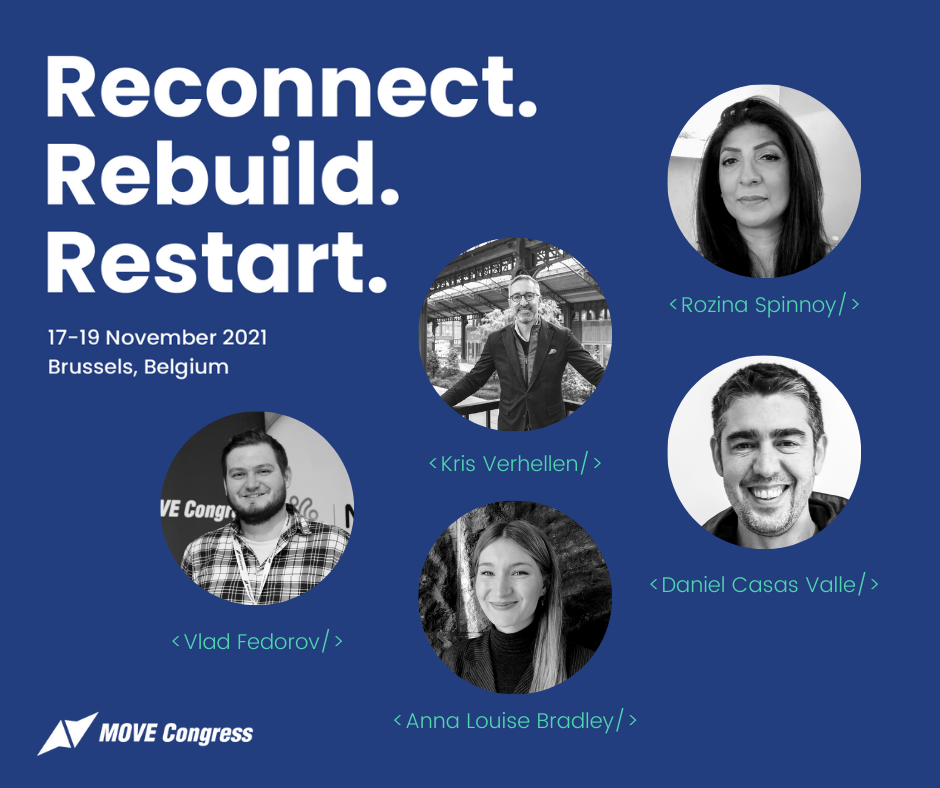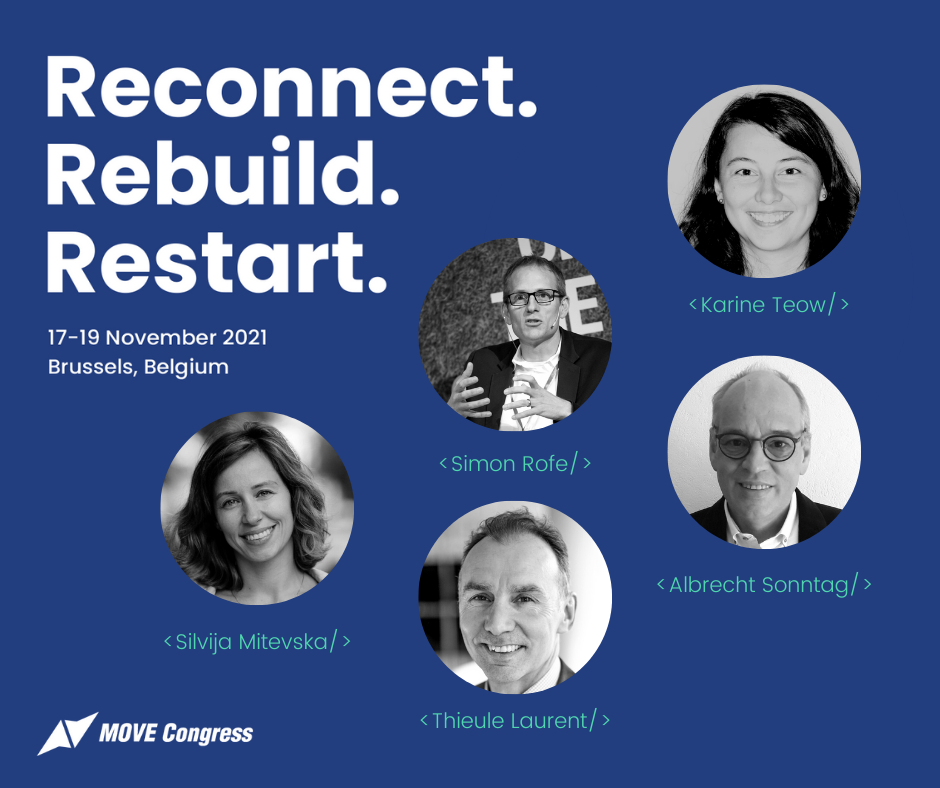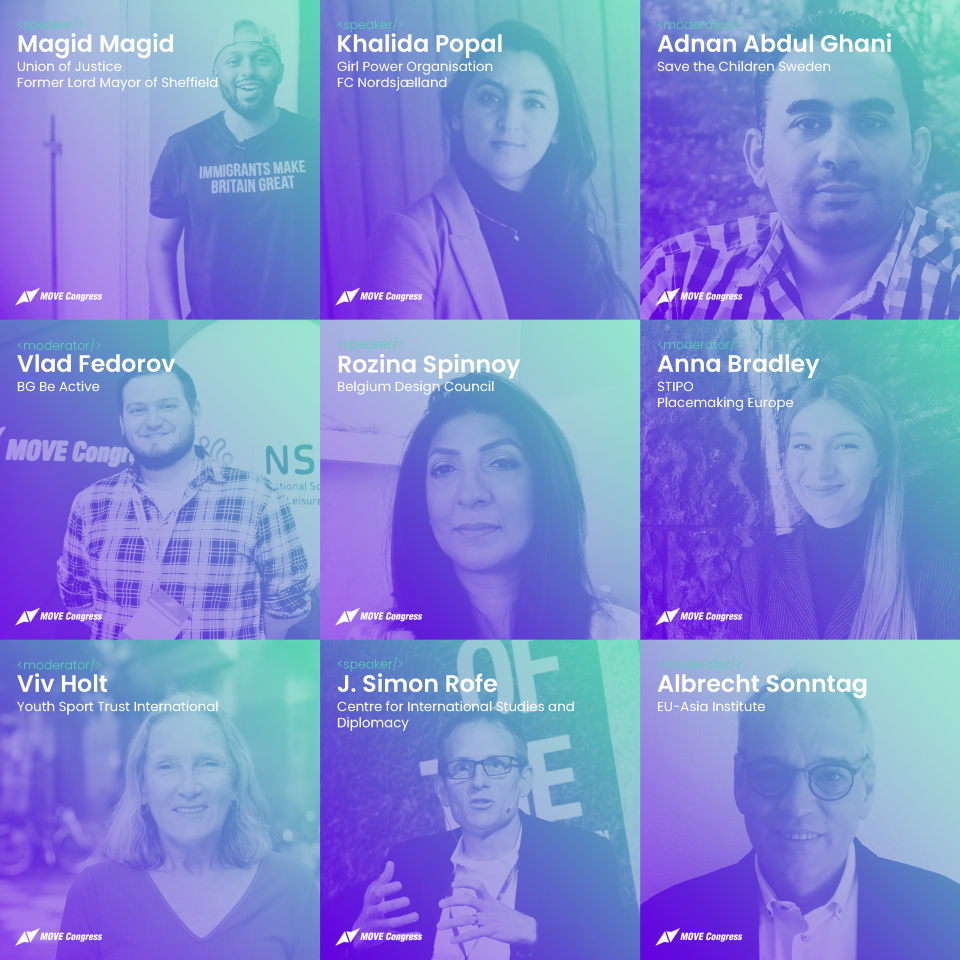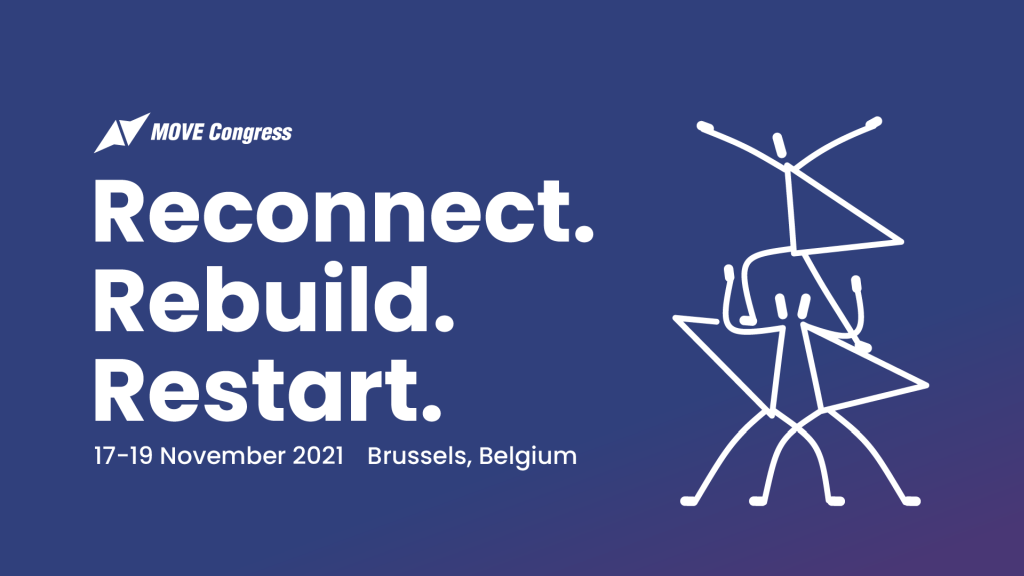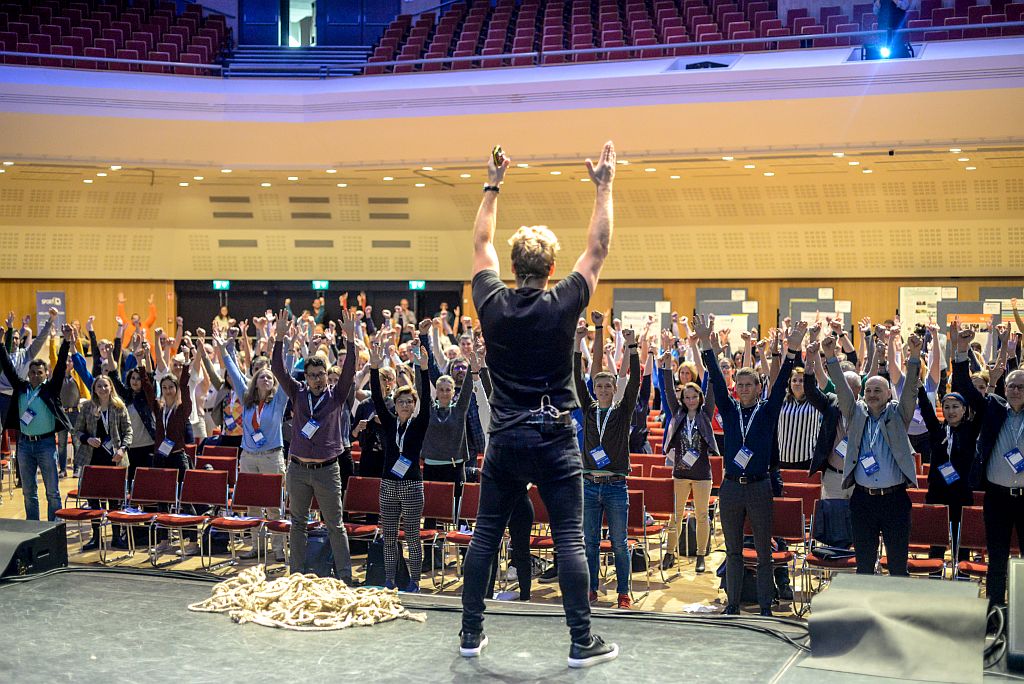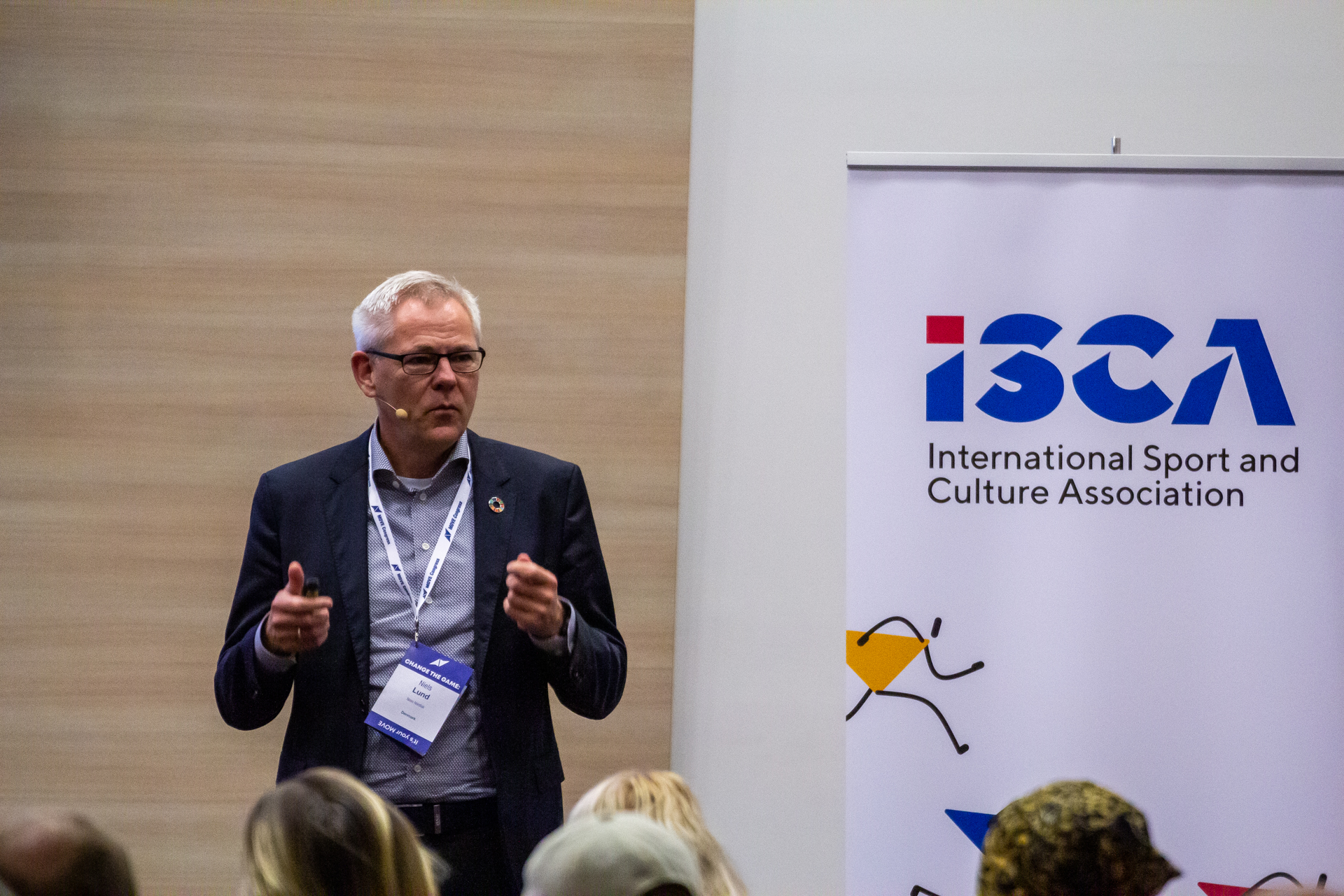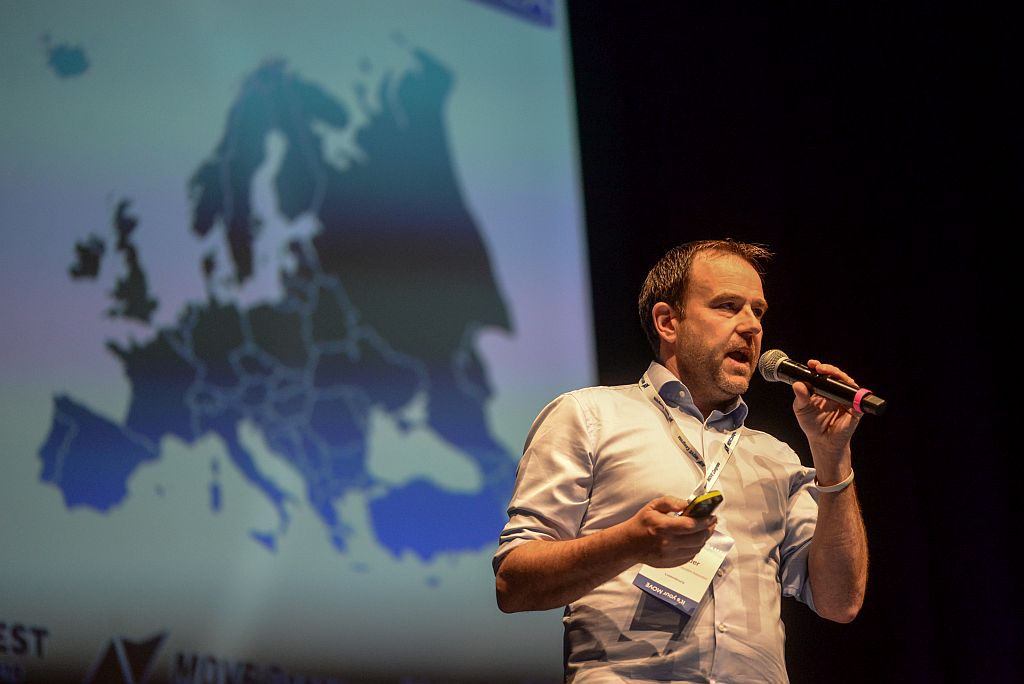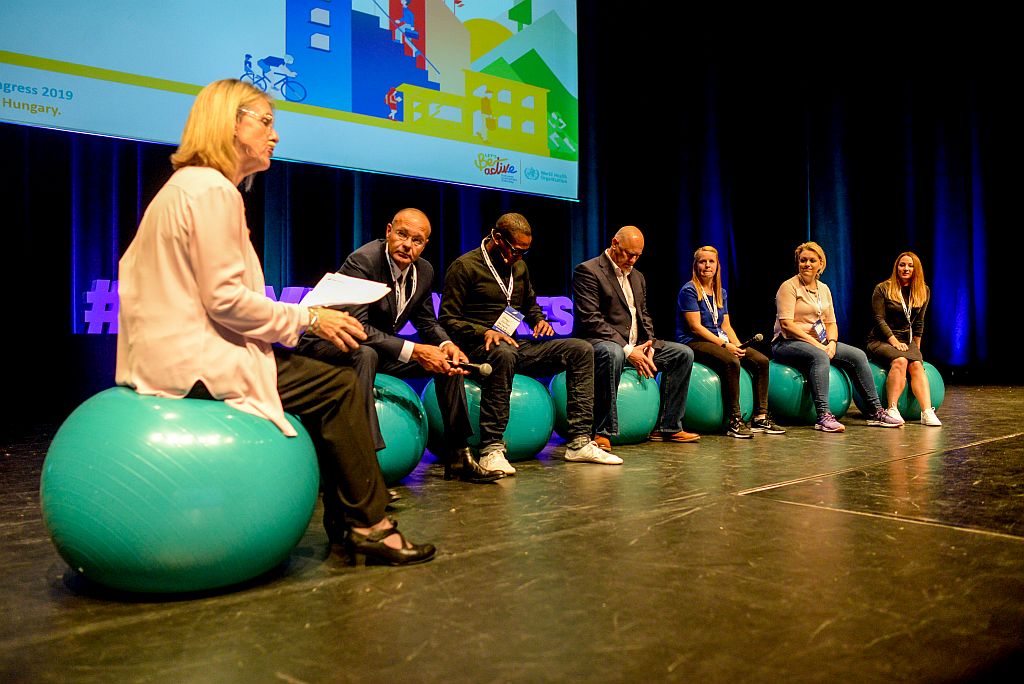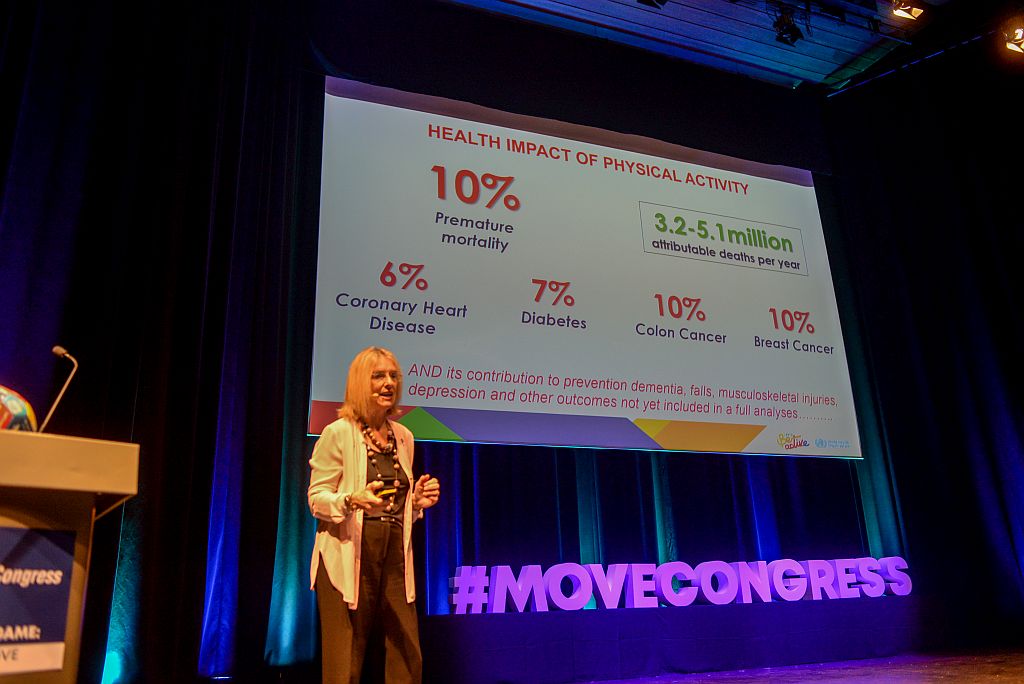MOVE Congress Workshop
Thursday 18 November 2021
Part 1: 11:30-13:00
Part 2: 14:15-16:30
Room: Cinema
Host: Laska Nenova, ISCA and Placemaking Europe Board Member
Moderators: Anna Bradley, Placemaking Europe, Laska Nenova, ISCA and Rozina Spinnoy, Belgium Design Council, Belgium
The pandemic and its impact of locking down cities and communities made it more important than ever for people to use the spaces available to them to keep physically active. Be it parks, pavements, squares, staircases or other public spaces – we looked at all of these places more creatively and we can now use this inspiration to Restart life in our cities in a new way.
The ‘Rebuild, Reconnect and Restart with Placemaking for the physical activity network’ interactive workshop will feature three distinctive sessions, providing inspiring yet practical concepts of re-imagining public spaces so they become more inviting for people to be physically active for recreation.
Join this workshop to discover:
- Real-world, effective solutions to activating public spaces
- How to bridge the gap between policy and academic work and actual implementation on the grassroots level
- More about the upcoming ‘Placemaking for physical activity kit (PARK)’, developed in the EU-supported project
The three sessions:
I. ‘Placemaking for physical activity kit (PARK)’ Session: 11:30 – 13:00
What will the sport and physical activity environment of the future look like?
PARK toolkit and Active Bench case study.
Moderator:
Anna Bradley, Placemaking Europe
Guest speakers:
‘Sport environments of the future’
Daniel Casas Valle, Senior Urbanist, Urban Dynamics, Portugal
‘Active Bench – case study’
Miel Vanhaverbeke, IPitup, Belgium
II. The Inspiration Session: 14:15 – 15:15
Moderator:
Laska Nenova, ISCA
Guest speakers:
Kris Verhellen, CEO of Extensa and Tour & Taxis, Belgium
Kris will kick-off the inspiration session by presenting the concept and the idea behind the creation of Tour & Taxis as a mixed-use, sustainable, and state-of-the-art development. The complex offers many opportunities for people to be physically active, and we will hear about the why behind it.
Bart Cardinaal, HUNC Design Rotterdam, Netherlands
Philippe De Witte, Active Local Europe
III. The Debate Session: 14:45 – 16:30
Moderator:
Rozina Spinnoy, Belgium Design Council, Belgium
In this session, we will have an active debate on how we can translate papers, research and policies into the language of grassroots sports activists; How to strengthen the cross-sectorial approach when developing and implementing initiatives linked to sport, physical activity, and improvement of public spaces; and how to move from planning to actual implementation.
Register for the MOVE Congress to take part! Day tickets are now available!
Rebuild, Reconnect and Restart with Placemaking for the physical activity network
MOVE Congress Workshop Thursday 18 November 2021 Part 1: 11:30-13:00 Part 2: 14:15-16:30 Room: Cinema Host: Laska Nenova, ISCA and Placemaking Europe Board Member Moderators: Anna Bradley, Placemaking Europe, Laska Nenova, ISCA and Rozina Spinnoy, Belgium Design Council, Belgium The pandemic and its impact of locking down cities and communities made it more important than ever for people to use the spaces available to them to keep physically active. Be it parks, pavements, squares, staircases or other public spaces – we looked at all of these places
Restart: Towards an EU Sport Diplomacy beyond 2021
MOVE Congress Workshop Thursday 18 November 2021 Part 1: 11:30-13:00 (Restart: Towards an EU Sport Diplomacy beyond 2021) Part 2: 14:15-16:30 (Flagship Event: Promoting a Strategic Approach to EU Sport Diplomacy) Room: Restaurant What is EU sport diplomacy? How does it fit in the context of public and/or cultural diplomacy? What are examples of good practices in other countries’ or regions’ sport diplomacies that could help us draft effective policy recommendations at the EU-level? The Towards an EU Sport Diplomacy project will host an interactive
TIME Magazine Next Generation Leader Magid Magid confirmed as MOVE Congress 2021 speaker
When TIME magazine announced its 2019 TIME100 Next list of “100 emerging leaders who are shaping the future”, it featured 29-year-old Magid Magid, the youngest ever Lord Mayor of Sheffield who had fled to the UK from Somalia as a child. We can’t wait to meet Magid Magid at the MOVE Congress 2021 in Brussels, Belgium, where we’re excited to announce that he’ll be one of our keynote speakers on 18 November. Having worked as an MEP for the Greens Party
Registration is now OPEN for the MOVE Congress 2021!
Hungry to return to a real, live conference? Eager to see your colleagues and friends from grassroots sport and physical activity organisations in different countries? The MOVE Congress is opening its doors in Brussels on 17 November 2021, ready to Reconnect, Rebuild, and Restart our sector moving into 2022. Registration is now OPEN and early bird seats are limited! The 10th edition of the MOVE Congress will be held from 17-19 November 2021 in Brussels, Belgium, and organised by ISCA in
MOVE Congress 2021 heads to Brussels
The MOVE Congress will celebrate its 10th anniversary in Brussels, Belgium on 17-19 November 2021 as an in-person and online conference that aims to bring people in the grassroots sport and physical activity sector back together to master a new era of their work. This year the theme is Reconnect. Rebuild. Restart. ISCA has secured support from Visit Brussels and the European Commission (through projects including the Integration of Refugees Through Sport Networking Platform) to host the event, which is set
It’s a wrap! Highlights, presentations and photos from the MOVE Congress 2019
One of the world’s most active conferences, the MOVE Congress, wrapped up in Budapest on Friday 18 October with more than 470 participants, 40 speakers, and 40 Innovation Alley presenters and exhibitors having been part of the action. Catch up on the coverage from the MOVE Congress right here, where you will find stories on all of the plenary sessions and conference tracks. If you were there, see if you can spot yourself in our highlight videos and gallery on Facebook or
Opening new doors to funding and support
Following on from successful fundraising workshops at the MOVE Congress in Rome (2014) and Copenhagen (2015), the “Opening new doors to funding and support” track at the MOVE Congress 2019 in Budapest presented an even more diverse picture of funding sources – from corporate to charities to emerging methods such as crowdfunding. The track was led by ISCA Development Director and ASSOCIATIONWORLD CEO Kai Troll, who started the session by pointing out that grassroots sport and physical activity promoters need
New perspectives on physical activity promotion to children
LazyTown’s Magnús Scheving and the founder of the Primal Play method, Darryl Edwards, gave MOVE Congress participants a spectacular launch into a full day focusing on the theme of getting more children active. The track “Discovering new perspectives on physical activity promotion among school children” unveiled a new Moving Schools Award scheme and shared experiences from 3 continents, with speakers travelling to Budapest from Canada, the US, Hong Kong, Luxembourg, the UK and Poland to be part of the Congress. Presenting
Game-changers connecting physical activity and health
Physical activity can help prevent non-communicable diseases. This is an established and scientifically proven fact. But it has taken time for the health and sport and physical activity sectors to recognise that they can join forces to help people become more active for their health. With Dr Fiona Bull from the World Health Organization underlining in the plenary that all MOVE Congress participants could play a part in delivering the WHO’s Global Action Plan for Physical Activity, the question that
Push the boundaries, think younger and embrace change to get more people moving
Dr Fiona Bull from the World Health Organisation (WHO) and Markos Aristides Kern from Fun With Balls commanded the stage in the MOVE Congress plenary on 17 October with TEDx style charisma, zooming in on physical activity from two vastly different angles and reaching one surprisingly similar conclusion. That we need to seriously challenge ourselves when it comes to getting more people active. Challenge ourselves to reach people who are inactive and likely to fall outside the radar of our daily

